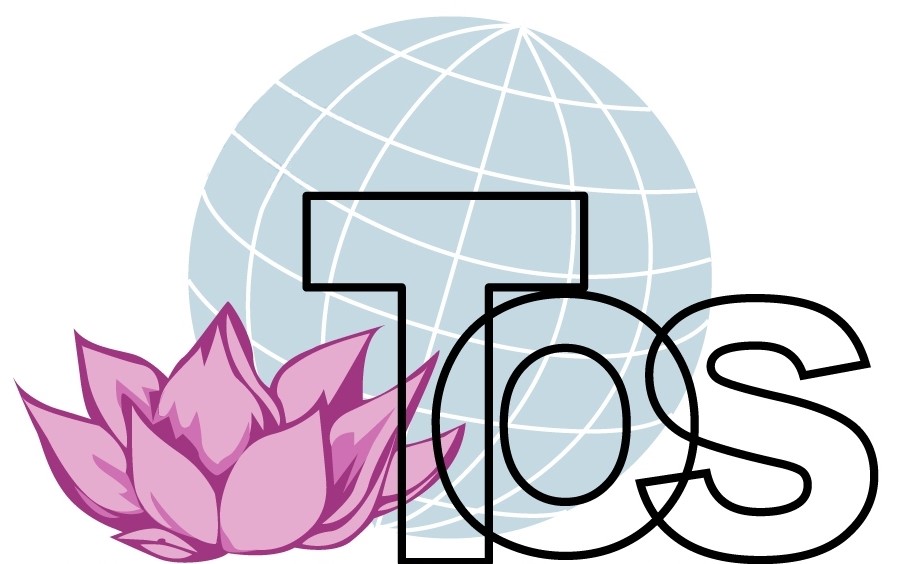A Man and His Passion
by Bruce Shay
The weekend before Thanksgiving found me reorganizing my small library of literature. I came across a folder from the 2017 Summer National Convention on Ecosprituality and found a piece of paper that I had folded in half and stuck in it. The information on that piece of paper was instrumental in helping me reinforce a change I wanted to make in my life. But I was also feeling alone in making that change. All of this was occurring during my first year of membership in the Theosophical Society. Unfolding the paper was like the unfolding of renewed life in the spring. It brought back memories.
The first memory that came back to me took place in the Rogers building at the Theosophical Society’s headquarters in Wheaton, IL. As I started to make my way toward the center of the auditorium, I encountered a man. He was standing with his back to the audio-visual equipment and facing the aisle. He appeared to me as slight in his physical stature but also someone I felt had many decades of wisdom. It was the sense of his wisdom that caused me to pause briefly when I approached his location. The pause was just long enough for us to make eye contact and for him to hand me the folded piece of paper I pulled from my folder. I do not remember if we engaged in any conversation other than a cordial greeting. The man was L. Miles Standish. The subject of the paper was, “Why Mankind Must Adopt A Whole Food Plant Diet.” And it was a Theosophical Order of Service (TOS) project he had initiated. The salient point in this one-page paper was to read a book called The China Study which Miles was distributing for free. I learned over time that Mr. Standish adopted the whole food plant-based diet as an alternative means to dealing with a physical health issue and had success. He also became convinced that he needed to carry this message to his brothers and sisters in the TS, the TOS, and the general public. It was the reason Mr. Standish was in the auditorium with his literature.
The China Study is described as the most comprehensive study of nutrition ever conducted. It is comprised of preeminent scholars in the field of medicine and nutrition who have meticulously laid out the science. Through clinical studies over the length of their careers, the scholars articulated the science from the perspective of epidemiology and clinical studies. I found it most interesting that the epidemiology and the clinical studies across different practitioners had limited formal coordination. The results from all practitioners and their individual studies resulted in identical findings on the impact of a whole food plant-based diet.
I read The China Study before my brief encounter with Mr. Standish. Having struggled with excessive weight and other addictions for all but nine years of my adult life, I found I was having early success in addressing the food addiction, losing weight, and moving the results of my blood tests into healthy ranges by adopting the lifestyle of a whole food plant-based diet. It is my experience that addictions are the result of trying to fill a large hole with something so small that no matter how much you consume the empty feeling remains. I knew the science required a spiritual backing to sustain success.
Mr. Standish was on a passionate mission. The paper he handed to me ultimately proved that the Theosophical Society was larger than the sum of its parts. It could fill the emptiness that I feel from time to time. Mr. Standish inspired me to spend time between lectures in the Olcott Library and at the Quest Book Shop. I was searching for links between vegetarianism and the ancient wisdom. The term vegetarianism as used in the early nineteenth century is synonymous with the twenty-first century term of whole food plant based. I found that a change in lifestyle to a plant-based diet was directly aligned to the Theosophical Worldview.
Annie Besant made a strong argument for vegetarianism. Her argument was captured in Adyar Pamphlet No. 27, entitled Vegetarianism in the Light of Theosophy. It is striking to me how Ms. Besant approached the argument. She prefaced the argument that what she said was open to everyone to interpret the information and make their own decision. A central point to her argument is that “Man has the power of choice to cause disorder or bring oneself consciously into union with the law.” Ms. Besant was well known for her sensitivity in the higher realms. She described the awful feelings she felt as she drew closer to the slaughterhouses on a trip to Chicago.
I found a small book in the Quest Book Shop that caught my eye. The book was on a special display rack. The book was a reprint Adyar Pamphlet No. 33 entitled Vegetarianism and Occultism by C.W. Leadbeater. The book captured my attention within the first couple of paragraphs. Mr. Leadbeater references the third object of the Theosophical Society in which we are to investigate the unexplained laws of nature. Mr. Leadbeater goes on to cite example after example of medical doctors in the early twentieth century in favor of vegetarianism.
The information disseminated by Besant and Leadbeater led me to look more deeply into the careers of medical professionals identified in The China Study. It is now second nature for me to cite their work even in casual conversations about the benefits of a whole food plant-based diet. The doctors listed below proved that a whole food plant-based diet is significant in the prevention and reversal of cardiovascular disease.
Dr. Caldwell Esselstyn
Dr. John McDougall
Dr. Dean Ornish
The statements made by medical doctors of the early twentieth century on vegetarianism and those made by medical doctors in the late twentieth and early twenty-first century on whole food plant-based diets differ only in the language of the time and the benefit of additional decades of research. The work of present-day doctors can also be summarized in the documentary Forks Over Knives. Forks Over Knives focuses on cardiovascular disease. But the research has expanded beyond the realm of cardiovascular disease. The documentary Code Blue follows people with Multiple Sclerosis who have stopped its progression. It also discusses the lack of nutrition education present day medical doctors receive in their training.
My search did not stop with the epidemiology and clinical health studies or the occult scholars. It led me to a social justice aspect. Animal agriculture has a negative impact on the environment which disproportionally impacts communities of color and the poor. The most disturbing part for me is the willful disdain for the Theosophical Society’s first object, Universal Brotherhood of Humanity.
It is no coincidence that I found my way to the Theosophical Society or that I had this encounter with Mr. Standish. It is no coincidence that Mr. Standish inspired me to look deeper into the Theosophical aspects of a whole food plant-based diet. I am certain he does not know the impact he had on me and how he strengthened Theosophy’s role in my life.
I am forever grateful for that passing meeting at the audio-visual control center. The only way I know to express my gratitude is to act like Mr. Standish did and share the passion.
One man with a passion, on a mission and armed with an 8.5 x 11, single sided letter made a difference. It provided space for me to gain greater control of my physical, astral, and mental bodies. I wonder how many others Mr. Standish impacted.

